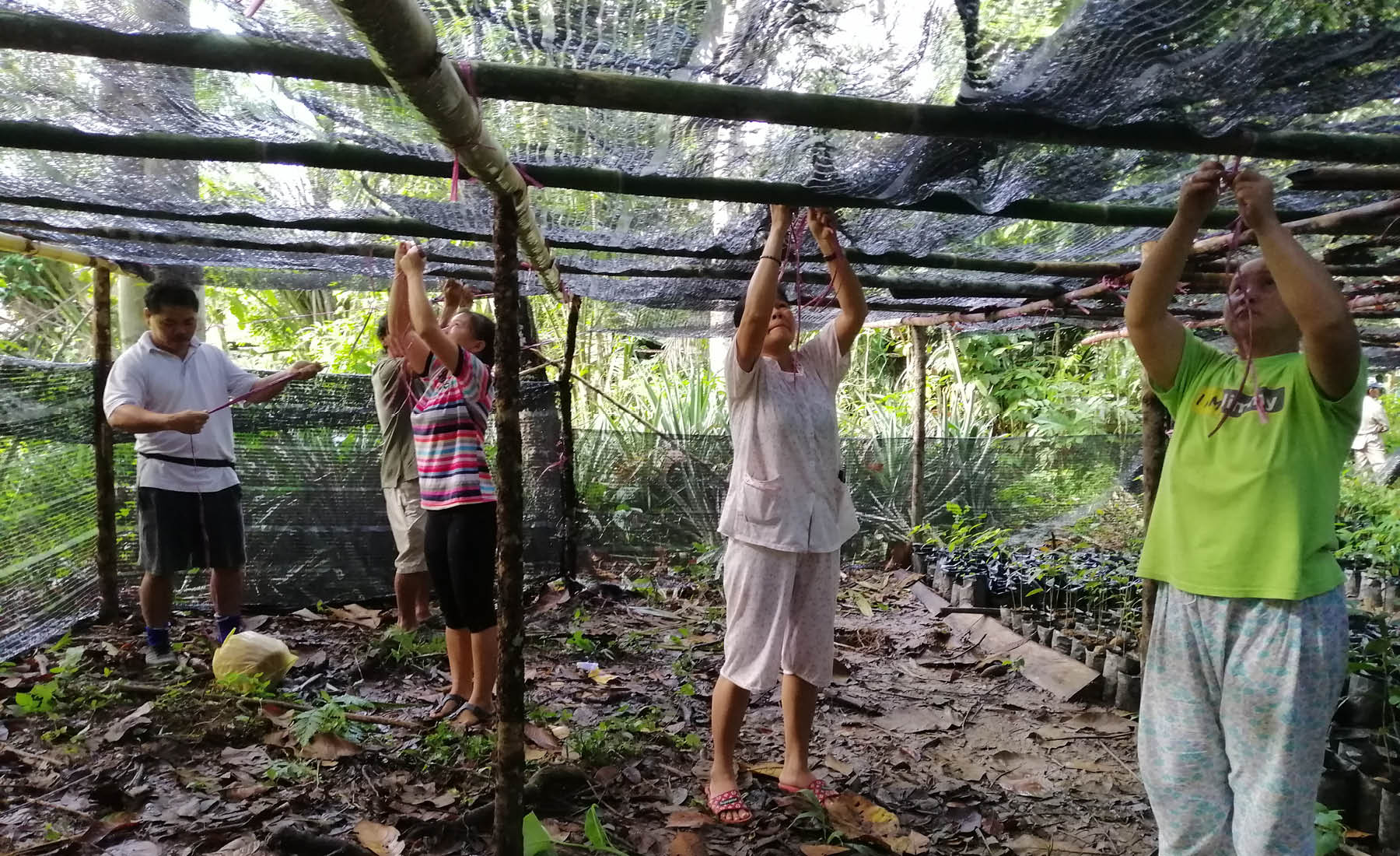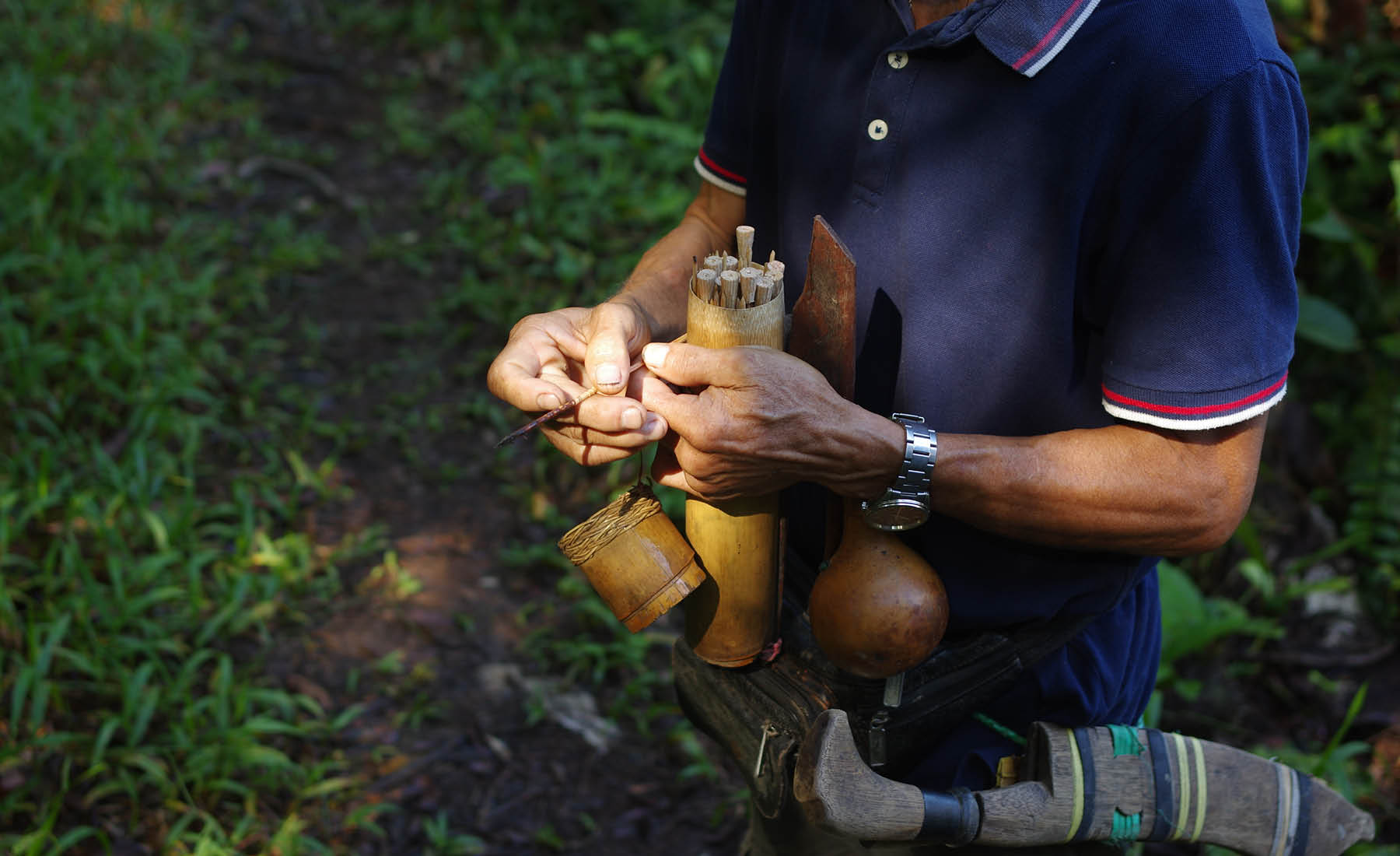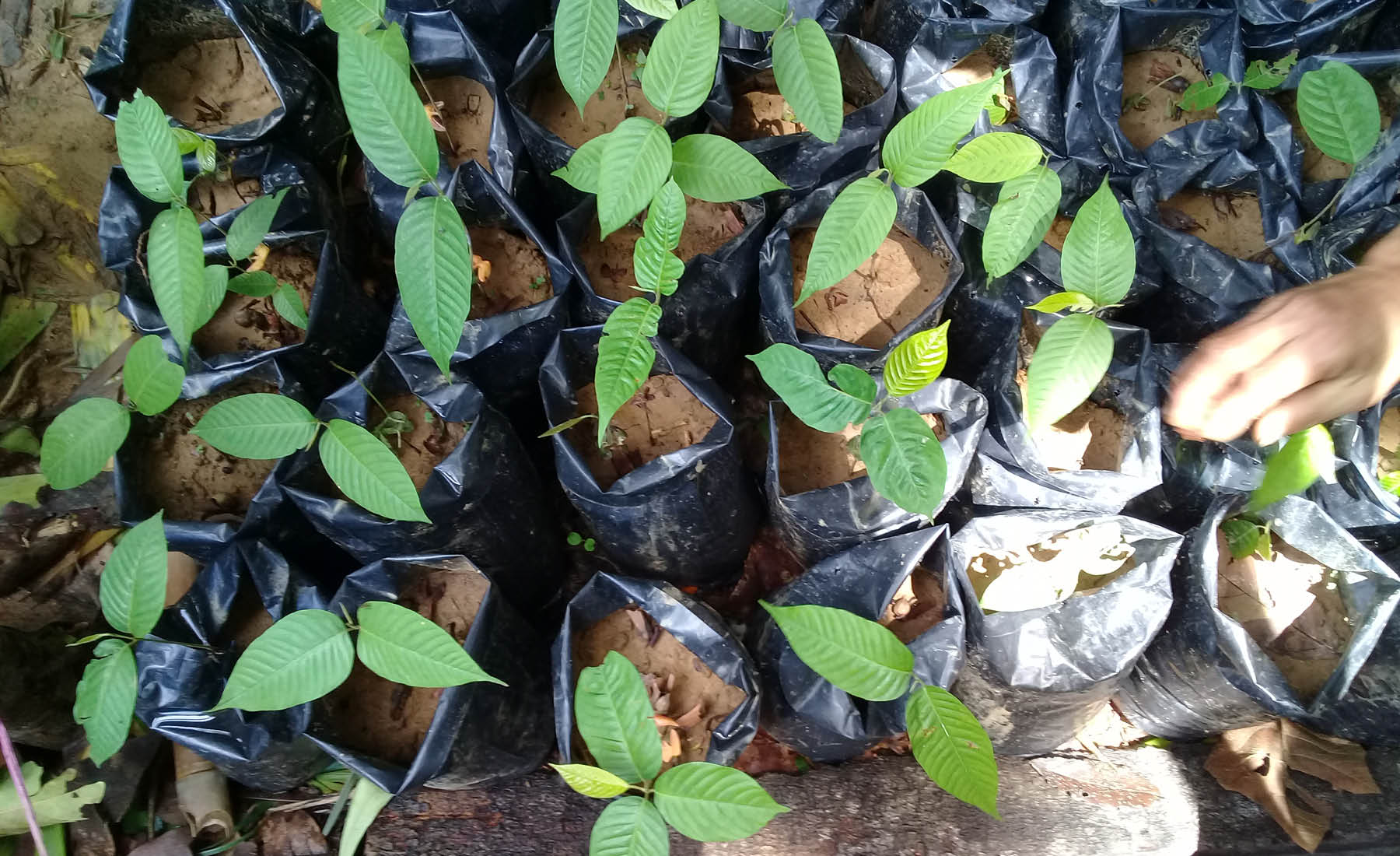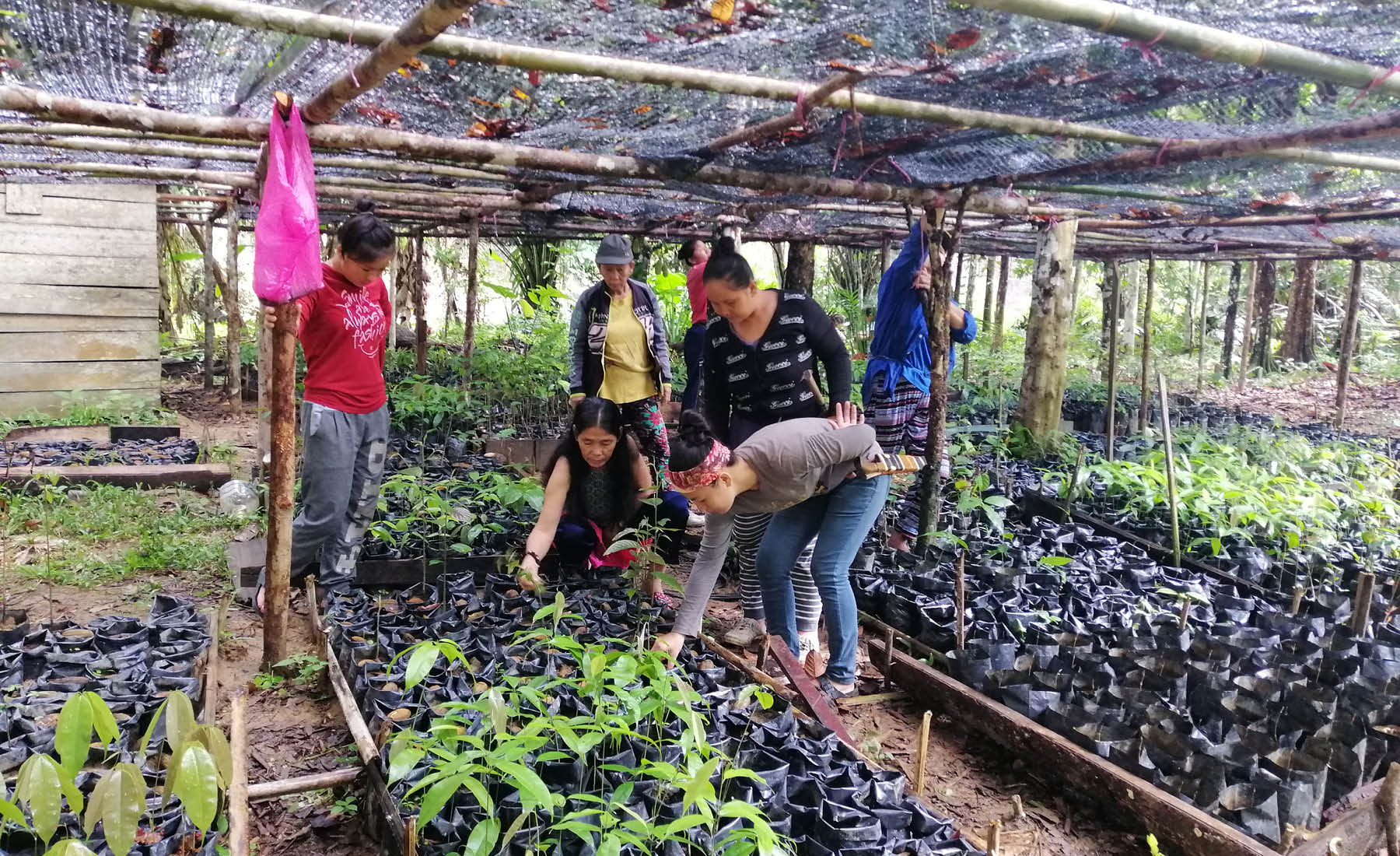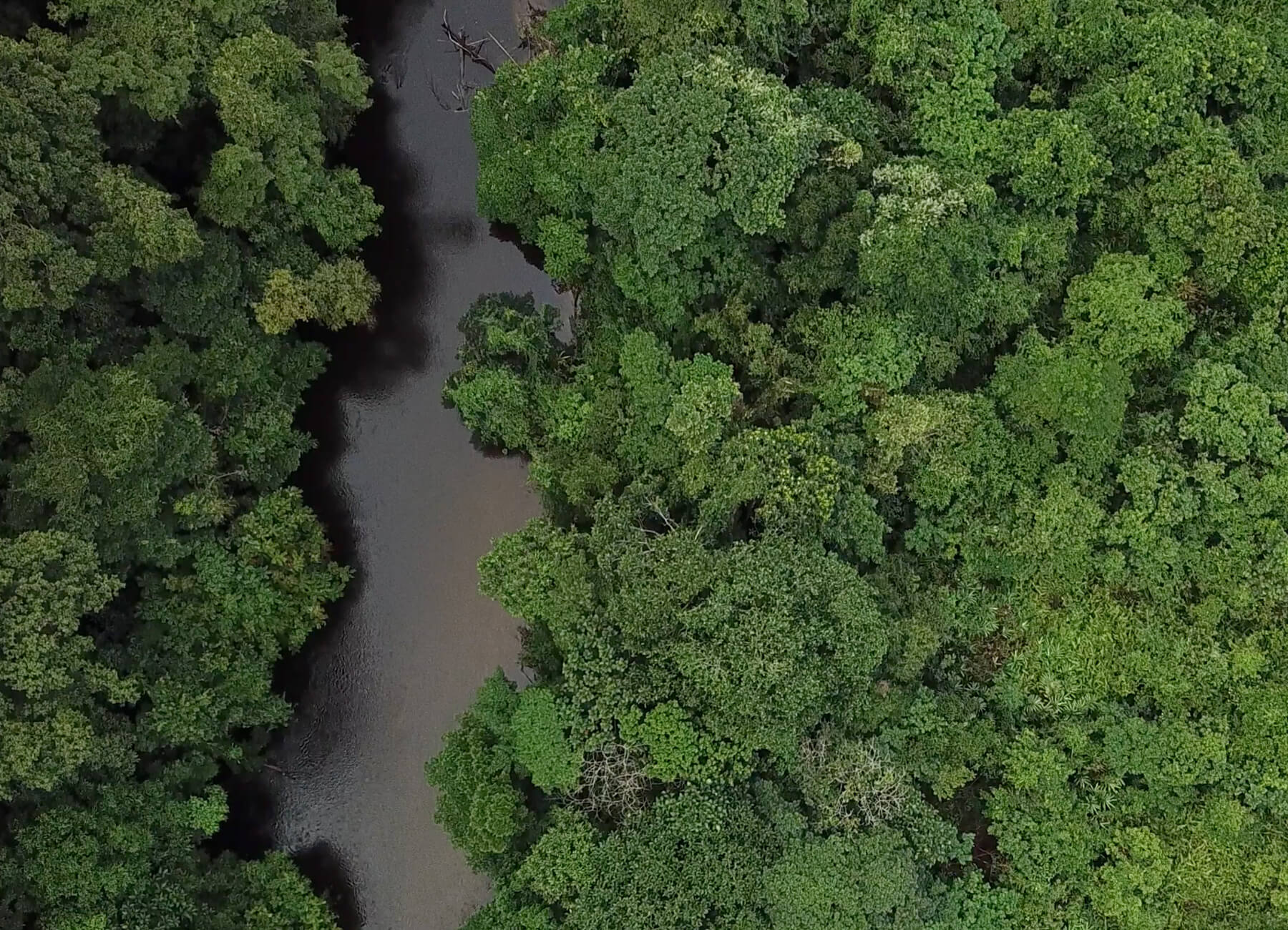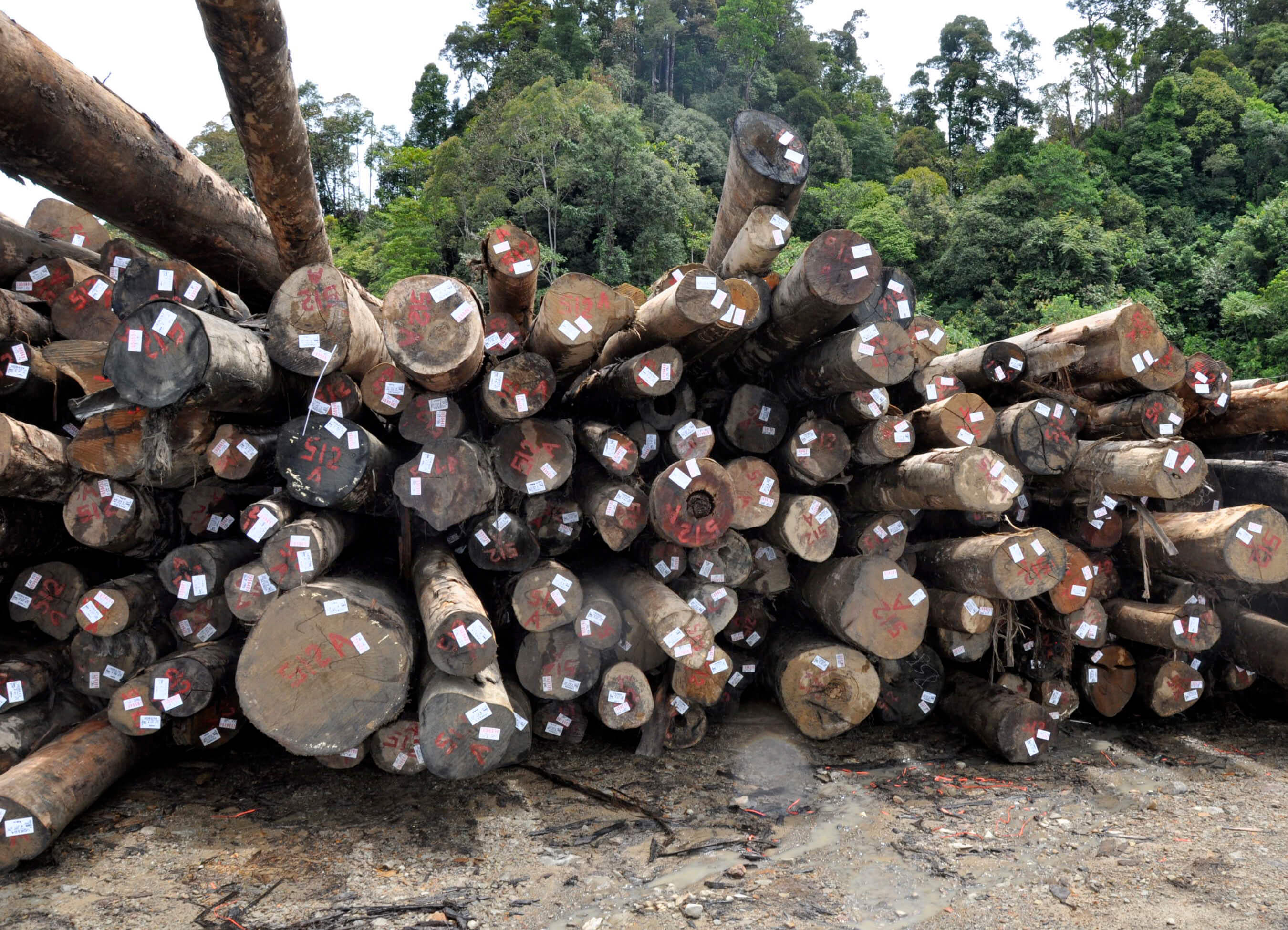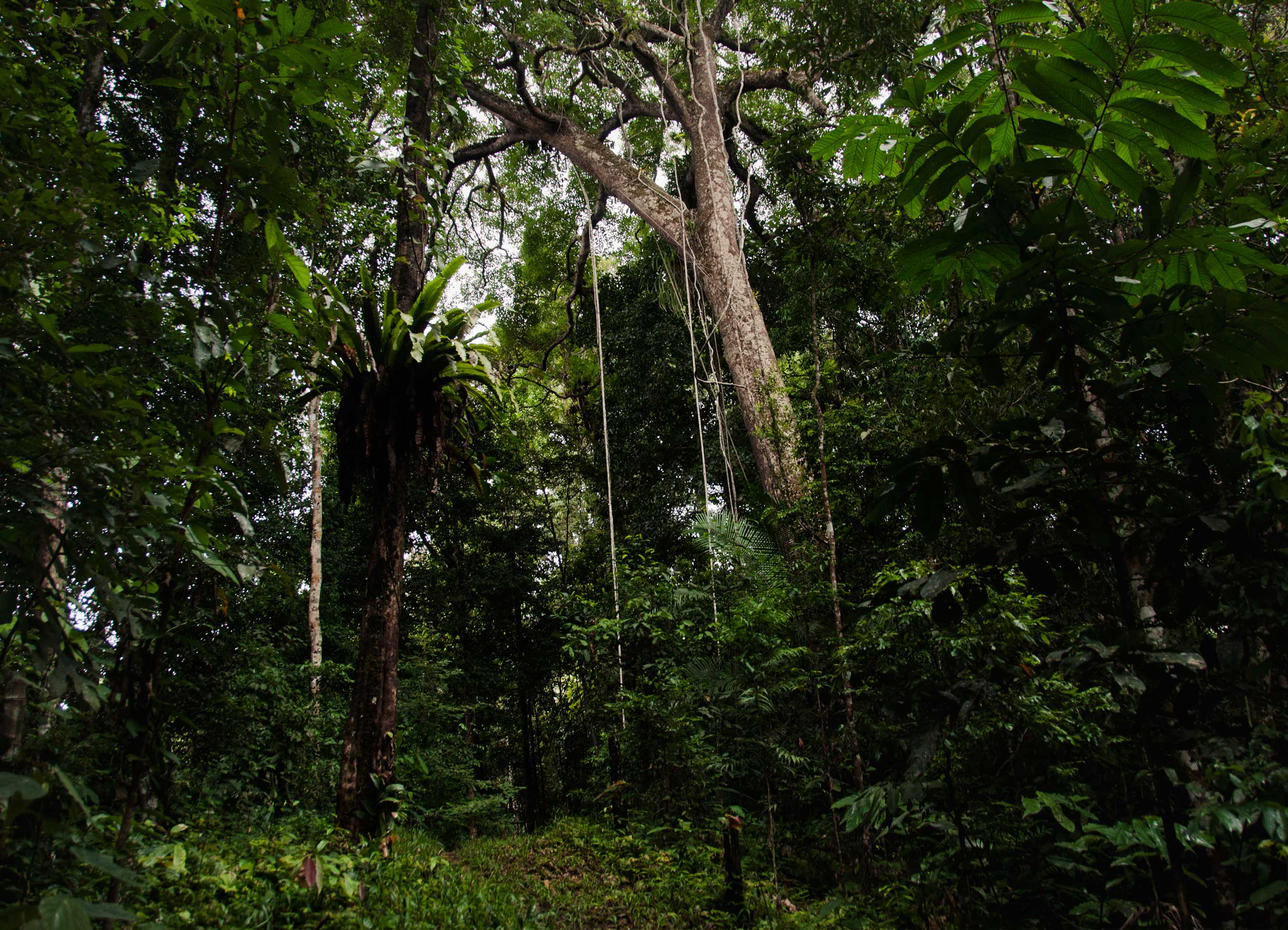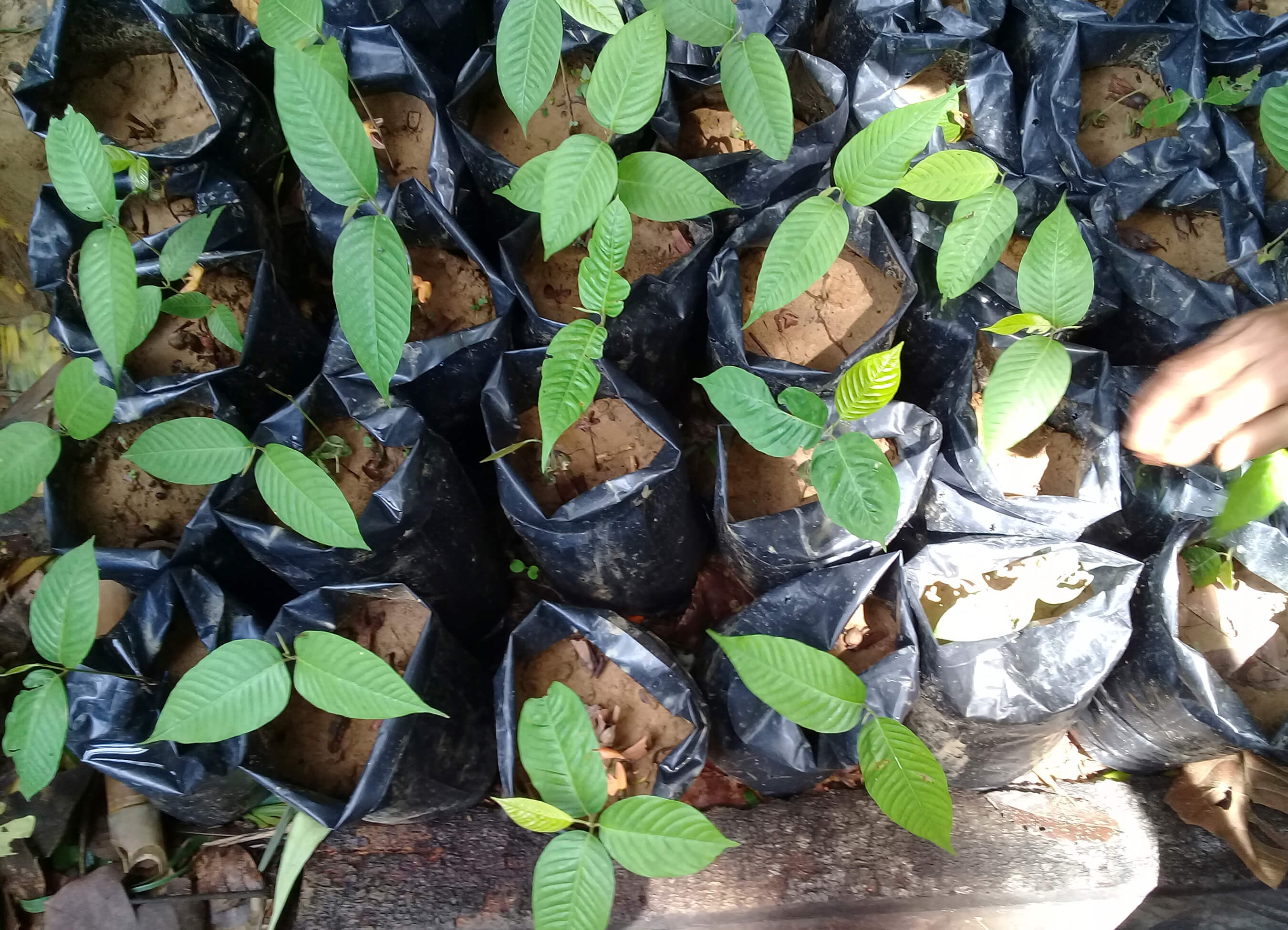
Forest Restoration
The Penan of Long Kerong use their primary forest, which they were able to protect from logging and which was able to preserve its biodiversity, to help other communities with reforestation. The Penan collect seeds in the forest and nurture seedlings in a tree nursery, which they use to help surrounding communities rebuild their degraded land and deforested forest stands. The community receives technical, financial and scientific support from the BMF.
The Penan in Long Kerong are building a tree nursery to obtain valuable plant material in the form of seedlings. The Penan are the only people in Sarawak who have been able to protect large contiguous areas of primary forest and are now using its rich diversity to obtain genetically diverse and high-quality seeds for tree species that have become very rare due to deforestation and slash-and-burn clearing. This is especially true for slow-growing species of wood, which, while they bind a lot of carbon also have a very high market value (e.g. many meranti species) and have therefore long been preferred by timber companies. In many places, these species, which play an important role both climatically and ecologically, have been so severely decimated that the forests can no longer regenerate naturally. One of the reasons for this is that these species can only reproduce slowly and in small steps and their seeds are not spread over large areas by birds or insects like other trees.
The seeds are potentially sold to customers in Sarawak and to partner projects of communities in and around the Baram Peace Park. These include, in particular, indigenous communities who need seedlings for the restoration of water catchment areas for micro hydroelectric power plants or for the regeneration of agricultural land. Indigenous communities that buy the seeds for reforestation purposes receive support in planting and monitoring the seedlings to ensure the sustainability of the project. At the same time, the tree nursery offers the Penan in Long Kerong an alternative income and independence from the timber and palm oil industry.
In Malaysia, when the political agenda talks about reforestation, it usually refers to the plantation-like cultivation of fast-growing, often non-indigenous timber (e.g. acacia). In fact, however, regeneration of biodiversity and protection of forest, soil and water cycle would be urgently needed. In order to protect the forest effectively, it is necessary to reforest with native tree species and to preserve intact forests. Only in this way can the rainforest fulfill its ecosystem services, which include the basis of life for the local population and the stabilisation of our climate
Through the project, the BMF is also setting an emphasis in the planned Baram Peace Park, whose goal is the protection of nature and the sustainable development of the area with the participation of the indigenous people.
